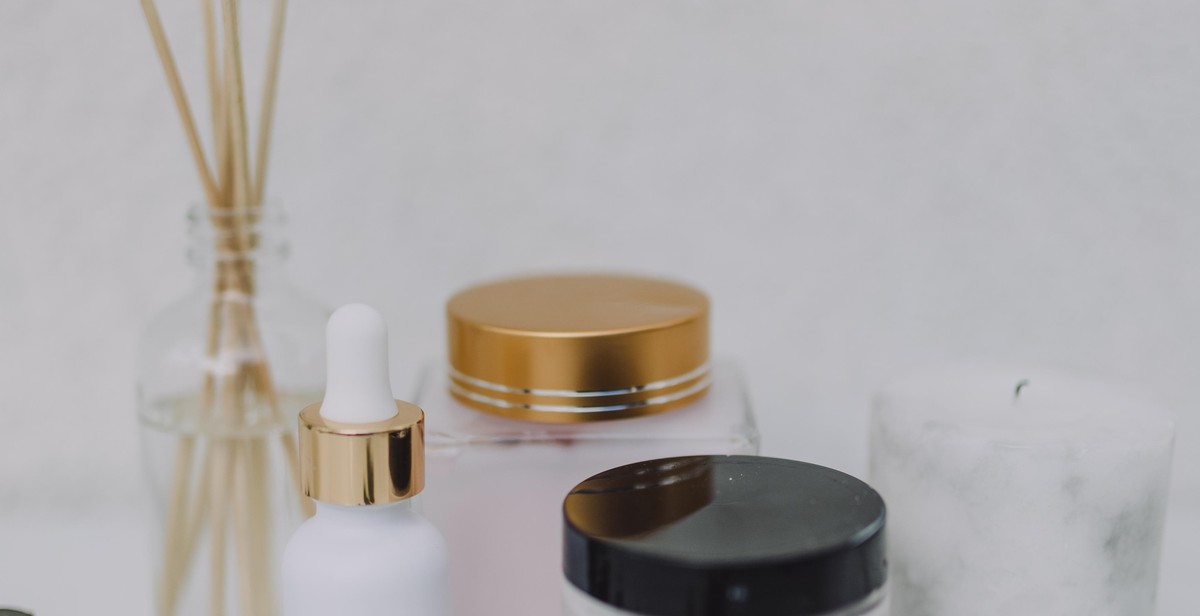How to Practice Self-Care for Mental and Emotional Well-being
Self-care is a vital aspect of maintaining good mental and emotional health. It involves taking deliberate steps to prioritize your physical, emotional, and mental well-being. Self-care practices can help you manage stress, boost your mood, and enhance your overall quality of life.
There are various self-care practices that you can incorporate into your daily routine to promote mental and emotional well-being. These practices can include physical activities, mindfulness exercises, healthy eating habits, and social connections.
The Importance of Self-Care
Self-care is essential for individuals of all ages and backgrounds. It helps to improve self-awareness, build resilience, and promote positive self-esteem. Self-care also helps individuals to manage their emotions, reduce stress, and prevent burnout.
Without self-care, individuals may experience negative effects on their mental and emotional health, including anxiety, depression, and other mental health conditions.
Self-Care Practices for Mental and Emotional Well-being
There are several self-care practices that individuals can incorporate into their daily routines to promote mental and emotional well-being. These practices include:
- Regular exercise
- Meditation and mindfulness
- Healthy eating habits
- Getting enough sleep
- Engaging in hobbies or creative activities
- Nurturing social connections
By incorporating these self-care practices into your daily routine, you can promote mental and emotional well-being and improve your overall quality of life.

What is Self-Care?
Self-care is the practice of taking care of one’s physical, mental, and emotional health. It involves intentionally engaging in activities that promote overall well-being and reduce stress. Self-care can take many forms, including exercise, healthy eating, meditation, and spending time with loved ones.
Defining Self-Care
Self-care is a broad term that encompasses a wide range of activities and practices. At its core, self-care involves taking care of oneself in a holistic way. This includes caring for one’s physical health, such as getting enough sleep, eating a healthy diet, and engaging in regular exercise. It also involves caring for one’s mental and emotional health, such as managing stress, setting boundaries, and engaging in activities that bring joy and fulfillment.
Why Self-Care is Important
Self-care is essential for maintaining good health and well-being. When we neglect our physical, mental, and emotional needs, we are more susceptible to illness, stress, and burnout. Self-care helps us to recharge our batteries, reduce stress, and improve our overall quality of life. It can also help us to be more resilient in the face of challenges and to better manage our emotions and relationships.
Research has shown that self-care practices can have a positive impact on our mental and emotional health. For example, mindfulness meditation has been shown to reduce symptoms of anxiety and depression, while regular exercise can help to reduce stress and improve mood. Engaging in hobbies and activities that bring us joy can also help to boost our overall sense of well-being.
Overall, self-care is an important practice for promoting mental and emotional well-being. By taking care of ourselves, we can better manage our stress levels, improve our relationships, and lead happier, healthier lives.

Types of Self-Care
Self-care is essential for maintaining mental and emotional well-being. There are various types of self-care that one can practice to ensure that they are taking care of themselves in all aspects of their lives. Below are some of the most common types of self-care:
Physical Self-Care
Physical self-care involves taking care of your body to maintain physical health and well-being. This can include activities such as regular exercise, getting enough sleep, eating a healthy and balanced diet, and practicing good hygiene. Taking care of your physical health can help boost your mood, reduce stress, and improve overall well-being.
Emotional Self-Care
Emotional self-care involves taking care of your emotional health and well-being. This can include activities such as journaling, practicing mindfulness and meditation, seeking therapy, and engaging in hobbies and activities that bring you joy. Taking care of your emotional health can help reduce stress, improve relationships, and increase overall happiness.
Social Self-Care
Social self-care involves taking care of your social well-being by building and maintaining positive relationships with others. This can include activities such as spending time with friends and family, joining social groups and clubs, and volunteering in your community. Taking care of your social well-being can help reduce feelings of loneliness and isolation, improve self-esteem, and increase overall happiness.
Spiritual Self-Care
Spiritual self-care involves taking care of your spiritual well-being by connecting with your beliefs, values, and purpose in life. This can include activities such as meditation, prayer, attending religious services, and engaging in spiritual practices that align with your beliefs. Taking care of your spiritual well-being can help reduce stress, increase feelings of inner peace and contentment, and improve overall well-being.
| Type of Self-Care | Examples |
|---|---|
| Physical | Exercise, sleep, healthy eating, hygiene |
| Emotional | Journaling, mindfulness, therapy, hobbies |
| Social | Spending time with friends, joining clubs, volunteering |
| Spiritual | Meditation, prayer, attending religious services |

Tips for Practicing Self-Care
Self-care is an essential part of maintaining mental and emotional well-being. Here are some tips to help you practice self-care:
Make Time for Yourself
It’s important to set aside time for yourself every day, even if it’s just a few minutes. Use this time to do something that you enjoy, such as reading a book, taking a bubble bath, or listening to music.
Get Enough Sleep
Sleep is essential for your physical and mental health. Make sure you’re getting enough quality sleep each night to help you feel rested and refreshed.
Eat a Balanced Diet
Eating a balanced diet can help you feel better physically and mentally. Make sure you’re getting enough fruits, vegetables, whole grains, lean proteins, and healthy fats.
Exercise Regularly
Regular exercise can help improve your mood and reduce stress. Find an exercise routine that works for you and stick to it.
Practice Mindfulness or Meditation
Mindfulness and meditation can help you reduce stress and improve your mental well-being. Try setting aside a few minutes each day to practice mindfulness or meditation.
Engage in Hobbies or Activities You Enjoy
Doing things you enjoy can help you relax and reduce stress. Find a hobby or activity that you enjoy and make time for it regularly.

Self-Care for Mental and Emotional Well-being
Self-care is an essential aspect of maintaining good mental and emotional health. It involves identifying your emotions, managing stress and anxiety, coping with depression, and dealing with trauma or PTSD. Here are some tips to help you practice self-care:
Identifying Your Emotions
The first step in taking care of your mental and emotional well-being is to identify your emotions. This involves paying attention to how you feel and recognizing the triggers that lead to negative emotions. Once you identify your emotions, you can take steps to manage them effectively.
Managing Stress and Anxiety
Stress and anxiety are common in today’s fast-paced world. To manage stress and anxiety, you can practice relaxation techniques such as deep breathing, meditation, and yoga. You can also take time to engage in activities that you enjoy, such as reading, listening to music, or spending time with friends and family.
Coping with Depression
Depression is a serious mental health condition that requires professional help. However, there are some self-care strategies that can help you cope with depression. These include getting enough sleep, eating a healthy diet, and engaging in regular physical activity.
Dealing with Trauma or PTSD
If you have experienced trauma or suffer from PTSD, it is important to seek professional help. However, there are some self-care strategies that can help you manage the symptoms of trauma or PTSD. These include practicing relaxation techniques, engaging in physical activity, and talking to a trusted friend or family member.
- Identify your emotions
- Manage stress and anxiety
- Cope with depression
- Deal with trauma or PTSD

Self-Care for Specific Populations
Self-Care for Caregivers
Caregiving can be an emotionally and physically demanding job, and it’s important for caregivers to practice self-care to avoid burnout and maintain good mental and emotional health. Some self-care practices that can benefit caregivers include:
- Getting enough sleep and rest
- Eating a healthy and balanced diet
- Engaging in regular exercise or physical activity
- Practicing mindfulness or meditation
- Setting boundaries and saying no when necessary
- Connecting with a support network, such as other caregivers or a therapist
Self-Care for Students
College students and other students face a unique set of challenges when it comes to mental and emotional well-being. Some self-care practices that can help students manage stress and maintain good mental health include:
- Getting enough sleep and rest
- Eating a healthy and balanced diet
- Engaging in regular exercise or physical activity
- Taking breaks and practicing relaxation techniques, such as deep breathing or yoga
- Connecting with friends and family for social support
- Seeking help from a counselor or mental health professional when needed
Self-Care for Professionals
Professionals in high-stress jobs, such as healthcare workers or first responders, may find it challenging to prioritize self-care. However, taking care of oneself is crucial for maintaining good mental and emotional health. Some self-care practices that can benefit professionals include:
- Setting boundaries and taking breaks when necessary
- Connecting with colleagues for social support
- Engaging in regular exercise or physical activity
- Practicing mindfulness or meditation
- Getting enough sleep and rest
- Seeking help from a therapist or mental health professional when needed
Self-Care for Parents
Parents face a unique set of challenges when it comes to maintaining good mental and emotional health. Some self-care practices that can help parents manage stress and prioritize their own needs include:
- Getting enough sleep and rest
- Eating a healthy and balanced diet
- Engaging in regular exercise or physical activity
- Taking breaks and practicing relaxation techniques, such as deep breathing or yoga
- Connecting with a support network, such as other parents or a therapist
- Setting boundaries and saying no when necessary

Conclusion
Self-care is crucial for achieving and maintaining mental and emotional well-being. It is not a selfish act, but rather a necessary one that allows you to be the best version of yourself. By taking care of yourself, you can better take care of others and lead a more fulfilling life.
There are various ways to practice self-care, and it is essential to find what works best for you. Whether it’s taking a hot bath, going for a walk, or practicing meditation, make sure to prioritize your self-care routine.
It’s important to note that self-care is not a one-time event but rather a continuous practice. Make it a habit to take care of yourself regularly, even when life gets busy or stressful.
Tips for Practicing Self-Care
- Set aside time each day for self-care
- Find activities that bring you joy and relaxation
- Practice mindfulness and meditation
- Take care of your physical health through exercise and healthy eating
- Surround yourself with positive and supportive people
Benefits of Self-Care
Practicing self-care can have numerous benefits for your mental and emotional well-being, including:
| Benefit | Description |
|---|---|
| Reduced stress and anxiety | Self-care can help you manage stress and anxiety, leading to a more relaxed and calm state of mind. |
| Improved mood | Self-care activities can boost your mood and increase feelings of happiness and positivity. |
| Better relationships | By taking care of yourself, you can improve your relationships with others and communicate more effectively. |
| Increased productivity | Self-care can help you recharge and refocus, leading to increased productivity and creativity. |
Overall, practicing self-care is essential for your mental and emotional well-being. By prioritizing self-care, you can lead a happier, healthier, and more fulfilling life.
